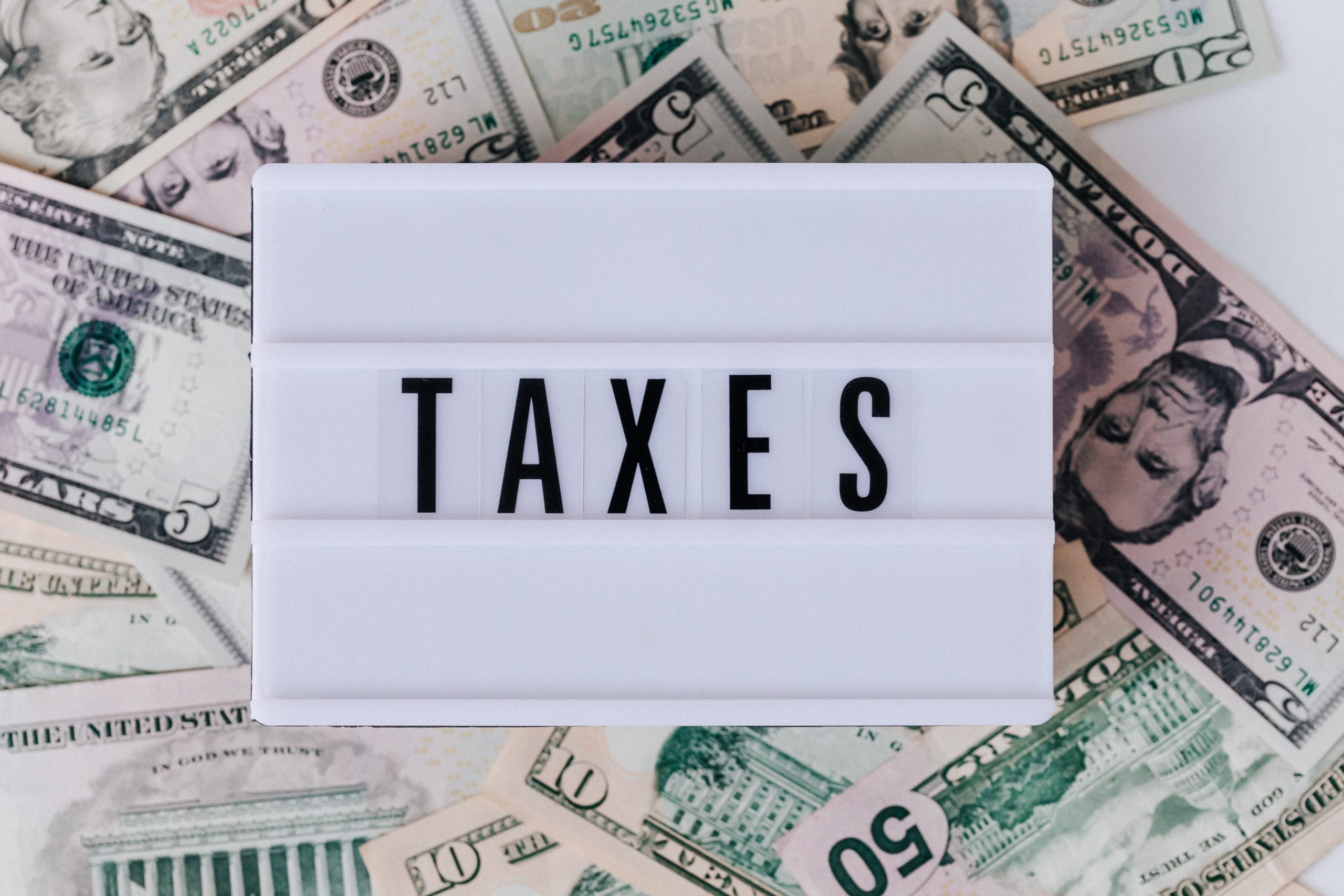Did you know that oil and gas royalty owners can take advantage of a form of depreciation on their interests called the depletion deduction? The depletion deduction is similar to the ability to depreciate the cost of a capital investment over its useable life that most businesses or investments like a residential real estate investment property get to enjoy. Depreciation is the mechanism for recovering your cost in an income-producing property.
In this episode, learn about the Depletion Deduction and why we need to let our voices be heard so that we can continue to depreciate our economic interests in property like all other industries.
Before we dive into the percent depletion deduction, let’s take a step back and cover how oil and gas royalties are taxed.
Generally speaking, royalties are also treated as ordinary income and are taxed accordingly. Usually you will receive a 1099 from the operator (or crude/gas marketer). It is a good idea to make sure that the amounts are correct by cross-checking against your check stubs. We covered how to do this in Episode 97: How to Audit Your Oil and Gas Royalty Statements.
Be sure to also subscribe on Apple Podcasts via the link above and please leave us an honest rating and review. We read every one of them and sincerely appreciate any feedback you have. To ask us a question to be featured on an upcoming episode, please leave a comment below or send an email to feedback@mineralrightspodcast.com.
How the IRS Defines Oil and Gas Royalties
The Internal Revenue Service (IRS) in the US has a specific view of oil and gas royalties and how they should be treated from a tax perspective:
Income from oil and gas royalties is passive-type income derived from the landowner’s royalty, overriding royalty, or a net profits interest. This type of income bears none of the burden of operations or development except taxes and any “post production” costs that state law allows an operator to charge a royalty owner in order to make the production marketable, such as for gas compression. Royalty income may be paid by the operator of the property or by the purchaser of the crude oil or gas production. In either event, the royalty owner should receive a statement with the check (usually monthly but at least periodically) showing the total sales of oil and gas from the property, interest in the property, and the amount of production. Taxpayer will normally report royalty income on Schedule E as rents and royalties or from flow through entities. The taxpayer can have both royalty and working interest income and report both on a Schedule C.”
So now that we know how royalties are taxed, it is important to understand what types of expenses you might be able to subtract from your royalty income to reduce your tax liability.
So related to that we are going to do a deep dive on the Depletion Deduction. We touched on this last week but one of the interesting things about the depletion deduction is that it is analogous to depreciation that you can take for other capital investments, like a rental property. So the depletion deduction is like depreciation for oil and gas assets.
Before we dive in, let’s talk about the example of a residential real estate investment property. In most cases, the expenses of renting your property, such as maintenance, insurance, taxes, and interest, can be deducted from your rental income. And, you generally get to deduct your rental expenses in the year you pay them (if you use the accrual method, ask your CPA how this should be handled).
Some common rental expenses for our real estate example include things like cleaning and maintenenace, Depreciation, mortgage interest, and legal or other fees.
Now I’ve highlighted Depreciation for a very specific reason. The Depletion Deduction is basically a form of Depreciation for Oil and Gas Assets. The IRS Defines Depreciation as follows: “Depreciation is a capital expense. It is the mechanism for recovering your cost in an income-producing property and must be taken over the expected life of the property.You can begin to depreciate rental property when it is ready and available for rent.”
This is an important distinction because the depletion deduction is not a subsidy for oil and gas operators like some politicians want us to believe.
What is the Depletion Deduction
From the IRS:
“An oil and/or gas producing property is a “wasting” asset. The quantity of oil and/or gas found in any natural deposit is finite. As the oil and/or gas is produced and removed from the deposit, the deposit is depleted. The owner of an economic interest in an oil and/or gas producing property may be entitled to a deduction from income for depletion of such economic interest as the oil and/or gas is produced and sold. Mineral interests, royalties, working interests, overriding royalties, net profits interests, and production payments are all economic interests in mineral deposits.
Once a mineral property becomes productive, the owner or owners of economic interests in that property must recover their cost basis through the depletion deduction (or in the event of sale or other disposition prior to total depletion of the property as provided in the IRC for such sale or other disposition).”
Diving a bit deeper, the Internal Revenue Code provides two specific methods of computing the depletion deduction:
Cost Depletion
“The cost depletion method is essentially a “unit of production” method of computing the allowable current tax period deduction. This computation is based on the taxpayer’s basis as provided in IRC 612.”
It requires you to determine the property’s cost basis and determine the split between the value of the land and value of recoverable resources (e.g. oil & gas).
The Cost Depletion method requires you to know the total number of “recoverable units of mineral” in the property’s “natural deposit”. This is basically saying, you need to know the Estimated Ultimate Recovery of oil and gas associated with the property (aka reserves). It is rare for most landowners to allocate part of their cost basis to the oil and gas reserves so this is not usually used for mineral owners.
Instead, there is another method called the “percentage depletion” deduction which is more commonly used.
Percentage Depletion
The IRS defines the Percentage Depletion Deduction as “a specified percentage of the taxpayer’s gross income from the property, but is limited to a maximum of 100 percent of the taxpayer’s net taxable income from the property. This is generally termed the “100 percent of net income limitation”. The 100 percent of net taxable income is computed without allowance for depletion in IRC 613(a). Refer to IRM 4.41.1.3.9.1.4 for a full discussion.
IRC 613A severely restricts the availability of percentage depletion for oil and gas production. In general, taxpayers classified as Independent Producers or Royalty Owners may claim percentage depletion on a limited volume of oil and gas production each year.”
As you can tell the depletion deduction is a complex subject so it is important to get help from an accountant or other tax professional familiar with oil and gas laws and related IRS tax codes.
What Types of Payments are NOT Eligible for the Depletion Deduction?
Since the deduction is only allowed once oil and gas is actually sold, it is not applicable against lease bonus payments. So, the important analogy here is that the depletion deduction is just like depreciation for other capital assets so you are unable to begin depreciating the asset until it is placed into service. In the case of oil and gas interests, you cannot begin “depreciating” the asset until it begins producing oil and/or gas and you begin receiving royalty payments.
So now that we know what the depletion deduction is, who it applies to, and when it can be applied, why is this important?
First of all, it is important because every royalty owner should ask their CPA about the depletion deduction to make sure that you are taking advantage of this if you can. I am not an accountant and I know the tax code is very complex so check with you CPA on this.
If you file your own taxes, then you absolutely need to look into this and see if you are eligible to use the depletion deduction if you haven’t been already. Again, this is where I would check with a tax professional, this isn’t tax or legal advice but I think most if not all royalty owners should be able to take at least the percent depletion deduction.
Proposed Legislation
So this brings us to the bill that was introduced by Senator Ron Wyden – Senate Bill 1298 titled The Clean Energy for America Act was introduced in the 117th Congress (2021-2022 session). As of May 12th it hasn’t left the Committee on Finance and hopefully it dies in committee because one of the features of this bill is that it “repeals assorted fossil fuel energy tax incentives”. Which is reported to include the percentage depletion deduction and the ability for working interest owners to expense intangible drilling costs.
This isn’t the first time this type of legislation has been introduced and previously each attempt at repealing this has failed. There is no guarantee that it will fail this time so it is definitely time to let our voices be heard as I mentioned last week.
If you were not familiar with the percentage depletion deduction, I hope you now have the information to utilize this important type of depreciation for your oil and gas royalty interests. As always, this is should not be construed as tax or legal advice. If you have questions, please contact your CPA or tax advisor for help.
Resources Mentioned in This Episode
Learn more about how to properly use the Depletion Deduction and testimony before the Senate about this important benefit that royalty owners enjoy.
- National Association of Royalty Owners Executive Director, Jack Fleet’s testimony before the Senate Committee on Finance about the Depletion Allowance
- IRS Publication 527 on Depreciation for Residential Real Property
- IRS Oil and Gas Handbook which has information on the Depletion Deduction
- Using the Depletion Deduction to Minimize Oil and Gas Tax Liability – Ohio State University fact sheet
Other episodes we mentioned:
Thanks for Listening!
To share your thoughts:
- Leave a comment or question below (we read each one and your question may be featured in a future episode)!
- Ask a question or leave us feedback via email or voicemail: (720) 580-2088.
To help out the show:
Click the Apple Podcasts Logo Above to leave us a rating & review. It really helps us reach those that need to hear this information and only takes a minute. We greatly appreciate it! Plus, you can get a shout out on a future episode!
Thanks again – until next time!




